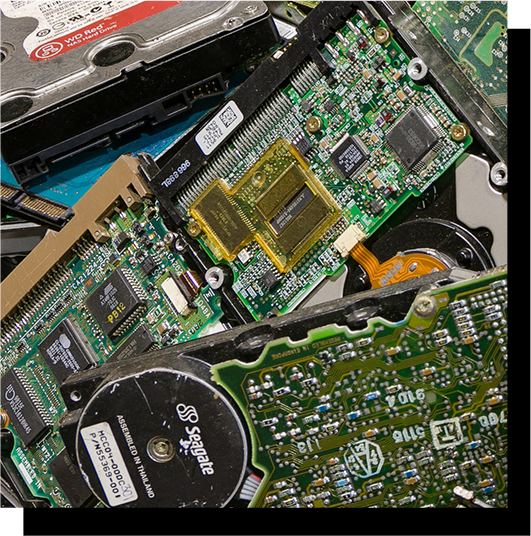Responsible Disposal Of
Your Electronics
At Arrow, we are happy to recycle your end-of-lifecycle electronics at each of our convenient locations,
or by utilizing our convenient Ship Your Components service.
- Our operational processes are audited and certified to ensure clear and proper recycling and
disposal of your electronic waste, we are certified as a NAID and R2/RIOS recycling vendor.
Learn More
- We stand by our Zero Landfill Policy
- We practice secure handling, processing, and destruction of devices that contain sensitive data.
Learn More
- We assist corporate clients in adhering to ISO standard compliance regulations by providing all necessary documentation




































